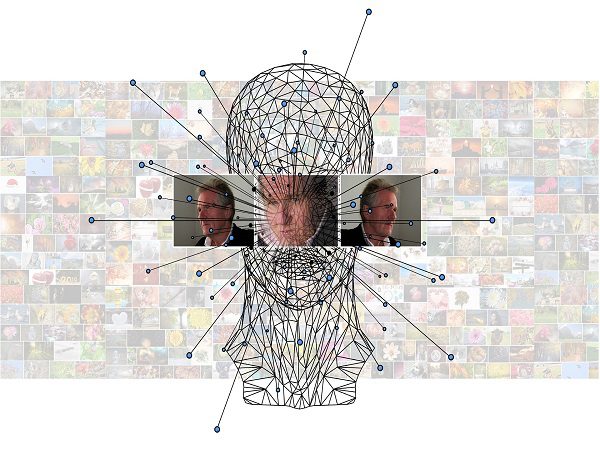Introduction:
In the ever-evolving digital landscape, Google searches have become an integral part of our daily lives. Whether we’re seeking information, looking for products, or trying to solve a problem, Google is our go-to platform. Behind the scenes, the magic happens through sophisticated algorithms powered by machine learning, creating a seamless and personalized search experience for users.
Understanding Machine Learning:
Machine learning is at the heart of Google’s search algorithms. It’s a branch of artificial intelligence that enables systems to learn and improve from experience without being explicitly programmed. In the context of Google searches, machine learning algorithms analyze vast amounts of data, identifying patterns and relationships to enhance the accuracy and relevance of search results.
The Evolution of Google Searches:
Over the years, Google has continuously refined its search algorithms, transitioning from simple keyword matching to more complex and nuanced processes. The introduction of machine learning has been a game-changer, allowing Google to understand user intent, context, and the intricacies of language.
Personalized Search Experience:
One of the significant benefits of incorporating machine learning into Google searches is the ability to provide a personalized search experience. Through data analysis, the algorithms learn about individual user preferences, search history, and behavior. This knowledge is then used to tailor search results, ensuring users receive information that is relevant and valuable to them.
Algorithmic RankBrain:
RankBrain, a machine learning algorithm introduced by Google, plays a crucial role in determining search rankings. Unlike traditional algorithms that rely on predefined rules, RankBrain can interpret and understand the meaning behind queries, even if they contain unfamiliar terms. This adaptive capability allows Google to deliver more accurate results for a broader range of search queries.
Enhancing User Satisfaction:
The primary goal of Google’s machine learning-powered algorithms is to enhance user satisfaction. By understanding user intent and delivering more relevant results, Google strives to make the search experience efficient and enjoyable. This user-centric approach has solidified Google’s position as the leading search engine globally.
The Role of Neural Networks:
Neural networks, a key component of machine learning, have significantly contributed to the success of Google searches. These networks simulate the human brain’s ability to recognize patterns, enabling the algorithms to comprehend the nuances of language and context. As a result, Google can decipher complex queries and deliver precise results.
Continuous Learning and Adaptation:
One of the remarkable features of machine learning is its ability to continuously learn and adapt. Google’s algorithms evolve in real-time, adjusting to changes in user behavior, emerging trends, and updates to the vast online landscape. This adaptability ensures that Google searches remain cutting-edge and reflective of the dynamic nature of the internet.
The Impact on SEO:
For businesses and website owners, understanding the impact of machine learning on Google searches is crucial for effective search engine optimization (SEO). Traditional SEO strategies focused solely on keywords may no longer suffice. Instead, a holistic approach that considers user intent, content quality, and overall user experience is essential to rank higher in search results.
User Intent Optimization:
Machine learning algorithms prioritize user intent, emphasizing the need for content that aligns with what users are seeking. Therefore, optimizing content for user intent involves creating valuable, relevant, and comprehensive information that directly addresses the queries users may have. This approach not only improves search rankings but also enhances the overall user experience.
Quality Content Matters:
As machine learning becomes more sophisticated, the importance of high-quality content continues to rise. Google’s algorithms can now discern between well-researched, authoritative content and low-quality, spammy material. To succeed in the world of SEO, businesses must prioritize creating content that adds genuine value to users and meets their informational needs.
User Experience and Mobile Optimization:
With the increasing prevalence of mobile devices, Google’s algorithms give preference to websites that offer a seamless and responsive user experience. Mobile optimization is no longer an option but a necessity for ranking higher in search results. Machine learning algorithms take into account factors such as page loading speed and mobile-friendly design, influencing the visibility of websites in search results.
The Future of Google Searches:
Looking ahead, the future of Google searches is poised to be even more intelligent and intuitive. As machine learning continues to advance, we can expect algorithms to better understand natural language, context, and user behavior. This evolution will result in an enhanced search experience, with results becoming more personalized, accurate, and tailored to individual preferences.
Conclusion:
Google searches and machine learning are intricately connected, shaping the way we access information in the digital age. The power of algorithms, driven by sophisticated machine learning technologies, has revolutionized the search landscape. As users, businesses, and content creators, understanding and adapting to these changes are essential for staying relevant in an ever-evolving online environment. Embracing the symbiotic relationship between Google searches and machine learning allows us to unlock the full potential of algorithms and ensure a more personalized and efficient search experience for everyone.



































